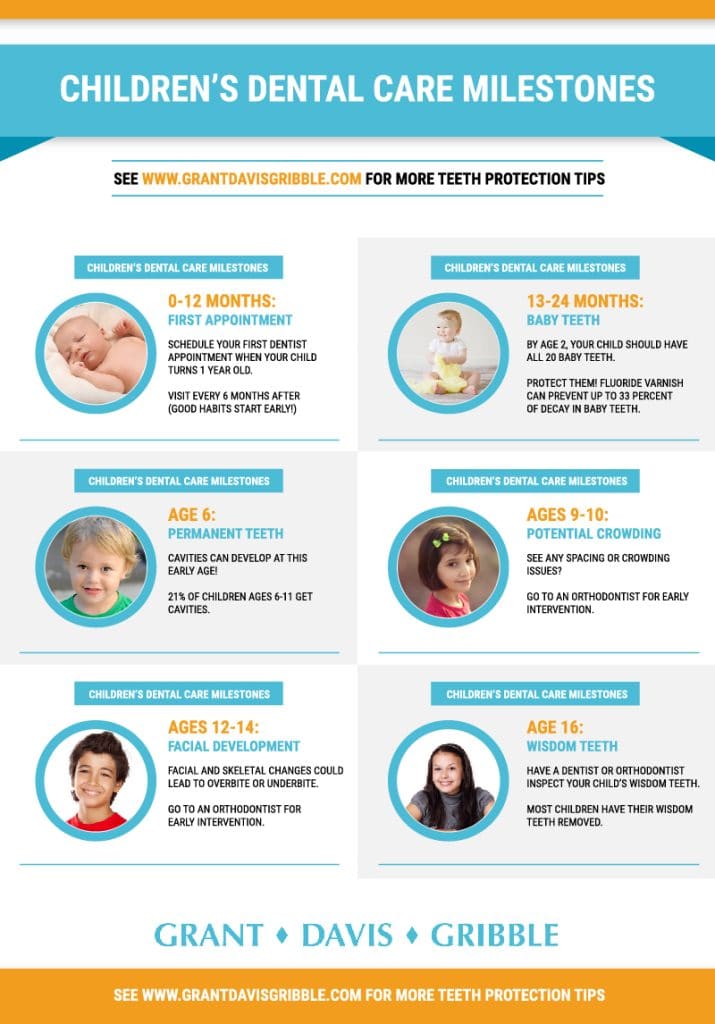Parent’s Guide to Children’s Dental Care

Early dental care determines a child’s dental and overall health for the rest of their life. Part of your job as a parent is to pay attention to developmental milestones and keep up with regular dental visits for your child. Here’s what you can expect and when as they are growing up.
Ages 0-1: First Appointment
Some children are born with baby teeth already present, while others don’t get their teeth until they’re 1 year old. Either way, they should have their first dentist appointment by the time they turn 1. After their first appointment, visits should be scheduled for every 6 months. As you probably know, they should keep this habit through adulthood!
Age 2: Baby Teeth
Children usually have all 20 baby teeth in by age 2. Just because they’re going to lose these to make way for permanent teeth doesn’t mean you don’t have to be just as careful with them. According to the CDC, fluoride varnish can prevent up to 33 percent of decay in baby teeth.
Age 6: Permanent Teeth
Around this age, the first permanent teeth start coming in. Even without a full set of permanent teeth, it’s important to know that children can have cavities at this early of an age. No matter how many teeth have come in, they need regular care, as these will be their teeth for the rest of their lives. According to the American Academy of Pediatric Dentistry, 21 percent of children ages 6-11 get cavities.
Ages 9-10: Potential Crowding
By this age, most of their permanent teeth are in, including canine or “eye” teeth. This is when spacing and crowding patterns can first be detected, making age 9-10 a pivotal time to see an orthodontist for early intervention with any issues.
Ages 12-14: Full Development
In most children, all permanent teeth are in by age 12, except for the wisdom teeth. During adolescence a lot of facial and skeletal developments take place. Overbites, underbites and crowding may become more apparent. Early intervention by an orthodontist helps with planning braces so that teenage growth patterns can be taken into account for the development of a healthy bite.
Age 16: Wisdom Teeth
Generally, wisdom teeth start coming in around age 16, and their relation to your child’s jaw is inspected for impaction. Most children have their wisdom teeth removed.
Having a family dentist helps to keep your child’s teeth (not to mention yours!) in top shape with consistent appointments and records. Learn more about Davis Gribble Hollowwa’s family dentistry in Albuquerque.

